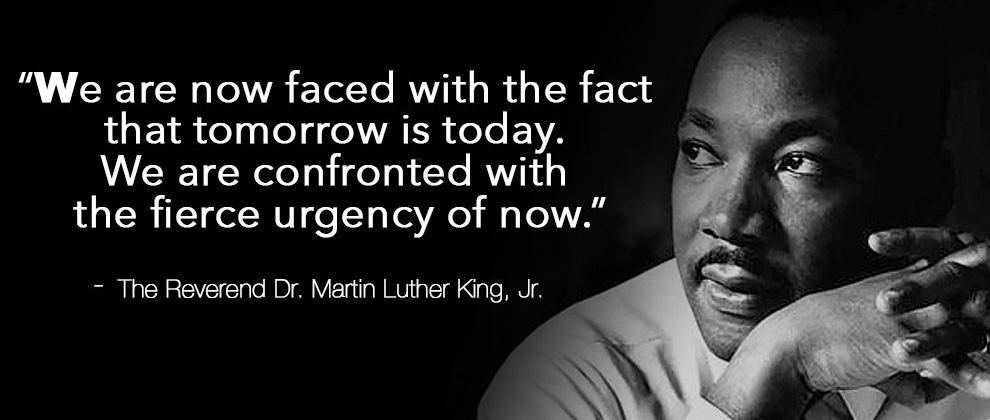
I wrote this a couple of years ago, and it seems more relevant today:
The Church in America is at a crossroads. In this cultural moment of instability and polarization, many have turned to a new kind of Christian Nationalism as the answer. I’ve seen a shift among some, from a grateful and healthy patriotism, to a nationalistic idolatry. Christian Nationalism threatens the Church, the witness of believers, and the advancement of the Gospel. It is important to recognize that many politicians have taken on the name of Christ and co-opted the Church for political purposes. Non-Christians attach the beliefs and actions of these leaders to the broader Christian witness. This, of course, is not new, but it has revealed an underlying syncretism of faith and politics that threatens the clarity of the Gospel. This syncretism is the result of a fear-based response to a growing sense that the Church is losing ground in the culture wars. Lacking faith that Christ and His Church can stand alone, many Christian leaders have co-opted government to accomplish a “kingdom” agenda. The dearth of moral leadership in the public square and the polarizing nature of leaders have magnified the tension and division among Americans. Regardless of what side you fall on- and most tend to fall heavily on one side or the other- we all know these are challenging days in America. We are as divided as I’ve seen in my lifetime. As we celebrate our freedom as Americans, it is important that we do so thoughtfully, intentionally, and from a biblical perspective.
Once upon a time, “Jesus is Lord”, was not only a declaration of faith, but a political statement. So political, in fact, and such an affront to the Empire and the Emperor who sat on the throne, it led to capital punishment. The Roman government had declared you could not worship two masters; it was Caesar and no one else. As a result, early believers (our ancient brothers and sisters) were martyred for their faith in Christ. It was not the declaration that, “Jesus is Savior” that shook the Empire but that, “Jesus is LORD”. This confession of faith flew in the face of the State because it meant that Christ alone is the King, the Ruler, the One with all power and dominion, and that there is no other. Allegiance is to Him alone.
If Christ is Lord of our lives, we are devoted to Him above all else – above our nationality, race, ideology, ethnicity, political leader, or party. Most Christians know the difference and seek Christ above all else, but we all wrestle with idolatry, more than we know. Calvin noted that, “The human heart is an idol factory”. Idolatry is most often making good things God things – even God-given things – and trusting in these things more than God. Idolatry can include comfort, security, wealth, success, power, and approval. It can include our spouses, families, jobs; even religion or doctrine can become an idol. Most Christians commit idolatry without knowing it. I’ve learned that idolatry is so insidious and subtle in my life, that it requires accountability and humble, thoughtful scrutiny. It’s been helpful for me to understand that my deepest emotions point me to my idols. What makes me anxious? What frustrates me, makes me angry, nervous, extremely happy or sad? Idols are revealed when we identify our fears. Something has become an idol if the thought of losing it would make me question if life is worth living. Something has become an idol when I think that, in it or through it, I find meaning, happiness, and worth.
Let me be clear that patriotism is not idolatry. A grateful and passionate patriotism is a proper response to the blessings that come from living in our country. Not everyone can celebrate their country, their founding fathers, and those who have given their lives for the freedoms we enjoy in America and often take for granted. But patriotism can become idolatry.
When does patriotism become idolatry?
- Christians practice idolatry when they believe that a political leader will bring the social change necessary, more than Christ.
At first glance, this seems absurd, but for many, their functional savior is a political leader or party, and not the Lord Jesus Christ. I know this because some are more passionate about their politics than they are about Jesus. They read more, think more deeply about, and study politics far more than they study the Bible or pursue theology. I know this because many watch political news more than they read their Bible and they engage in political conversations (most often with others who agree with their disparagement of certain opposing political positions) than they engage in spiritual conversations with others about Jesus. I know this because of the fear, anxiety, and anger I see on social media platforms. I see Christians who are more passionate about defending a political view or partisan position than they are about defending the Gospel and the truth of Christ. I know this because I see Christians who support and defend a candidate or leader carte blanche, even when it is clear that he/she is speaking or acting in ways that are clearly not the Way of Jesus. All leaders are flawed and surely no one person or party is right on every political matter.
I can’t imagine Paul wringing his hands, anxiously praying for the Father to place a certain Emperor on the throne in Rome so that the Gospel could finally advance in the Empire. Paul and the early followers of Jesus did not rely on a political leader or the State for any power or authority to advance the Gospel. They knew who their Leader was and they were operating out of all the power and authority they needed, given to them by Christ, through the empowering presence of the Holy Spirit. Can you imagine Jesus endorsing a certain candidate in our day, with the expressed position that through him/her the kingdom agenda would finally become a reality? Praise God we live in a free democracy and that our leader is not a totalitarian dictator (as in Paul’s day). We need to remember that our national leader is just a president who has 1/10th of the power of any totalitarian dictator. Regardless of your political persuasion we can all praise God for the genius of the “American Experiment”, with our Constitution and our three branches of government with its checks and balances. Let us be thankful for our democracy.
- Christians become idolatrous when they believe in the ability of the State to affect change, more than the Church.
Christians practice idolatry when their focus for change is on what the State can do more than on what can be accomplished in and through the local church. Many believe the State will bring necessary change, instead of embodying that change and living out the Gospel in every domain of culture. When one’s energies are spent electing one candidate up against another more than on the ministries at his/her church, which can bring about effective and lasting change locally, it has become idolatrous. Patriotism can be idolatrous when our hope is in the State and when our “agent” of change is the government, or an election or specific candidate or party.
I know that some trust in the State more than Christ because I see those who claim to have been transformed by His love, but do not love others as He has loved us. These days we are quick to label, categorize, and demonize people (and those who agree with them), so that thoughtful dialogue and civil discourse becomes impossible. If you categorize and tag people, calling them names or placing labels on them, it dismisses them from having a thoughtful perspective. And it dismisses you from thoughtfully and respectfully listening to them. This lack of engagement will never lead toward empathy and understanding. This is the lost art of American politics. For the Christian, the hope of the world is Jesus Christ and His Spirit alive and active, embodied in the Church, as the People of Jesus live out their faith.
- Christians become idolatrous when they spend more time and energy on political matters than on a pursuit of Christ and the making of disciples.
An obsession with politics may reveal a misguided focus for the believer. This is not to say that we do not need Christ-centered politicians and Spirit-led leaders in government. Surely we do, as in every cultural domain. But when we find that our time spent serving in and through our local church, is less than the time spent reading about, and watching news about the State, elections, parties, or working for political change, we’re out of balance.
But can’t we be both patriotic and politically informed and involved? Certainly we can, and that is not my concern here. My concern is that too many Christians spend too much of their God-ordained time and precious energy supporting partisan politics, believing that they are furthering justice and advancing the Gospel – thus revealing a syncretism at best and idolatry at worst. We advance the Gospel by advancing the Gospel. It is Good News that needs to be shared. In the end, people don’t care about our opinions. They care about our love. What they need is Christ-like love, empowered by His Spirit within us. Our opinions don’t change lives, but our love does. His love does. No one is argued into the kingdom.
When it comes to seeing real change in our culture, where do I focus my energies? Is it engaging my neighbor or ranting about politics and demeaning those who vote differently? Like you, like me, like every American, it is their right to vote as they choose. Who or what do I think is the real agent of change? What do my anxious thoughts and actions reveal about where my allegiance lies? Jesus said that whatever we value most is where our thoughts and actions will run. So, I urge us all to take a hard look our lives and where our minds and hearts are going. And then celebrate with unbridled joy the God-given privilege of living in America, where we are free to worship Him above all else and to share His Gospel with gentleness and love. Praise Him!
 Afghans, seeking refuge in Kabul, now in a state of terror, violence, and oppression.
Afghans, seeking refuge in Kabul, now in a state of terror, violence, and oppression.




